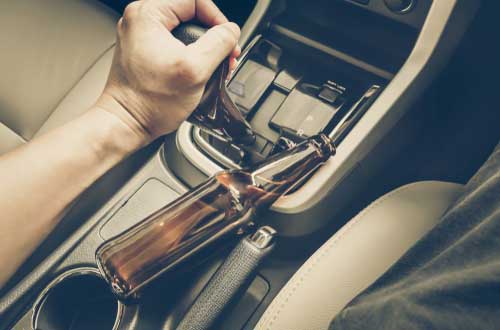If you’ve ever been stopped for DUI or arrested for DUI, you may recall the process quite well. The police pull you over on suspicions of some sort of traffic violation. This can be anything from having a taillight out to speeding. If, after pulling you over, the police suspect you’re drunk, they’ll ask you to do a few things. First, they’ll ask you to breathe into a portable breathalyzer test (PVT). They may also ask you to do a field sobriety test (FST.) If you fail either of these things, they will arrest you for DUI. In fact, even if you don’t submit to these tests, you can still be arrested and charged with DUI in Clemson, South Carolina.
A lot of people are confused when it comes to these tests. They aren’t sure if they’re legally required to submit to a breathalyzer test or not. South Carolina has something called an implied consent law. This means that, by accepting your driver’s license, you agree to submit to a breath, urine and blood test. This does not mean, however, that you’re required to submit to a portable breathalyzer test. Here, we’ll talk about what you do and do not have to do when it comes to a DUI stop. We’ll also talk about the consequences of refusing to submit to these sorts of tests. Either way, if you are arrested for DUI in Clemson, you really need to talk to an experienced DUI lawyer.
South Carolina Does Have an Implied Consent Law
When you apply for and accept your driver’s license in South Carolina, you give implied consent. This means that, if you’re arrested for DUI, you will have to submit to a chemical test. This includes a breathalyzer, blood or urine test. The State has a right to keep their roads safe. This means they have the right to check to see if certain drivers are impaired. This gives them the right to subject you to certain tests to test your blood-alcohol level.
Just because the police have a right to subject you to testing doesn’t mean you don’t have a right to refuse a test. However, there are certain consequences of refusing this testing. In fact, there are mandatory consequences and penalties for refusing to submit to this kind of testing.
If You Refuse a Breathalyzer, You Face Certain Consequences
You are allowed to refuse the breathalyzer when you’re arrested and charged with DUI in South Carolina. However, you’ll face certain penalties if you do so. Once you have been arrested for DUI, the following rules apply when it comes to refusing a breathalyzer:
- Your driver’s license will be suspended for six (6) months
- the fact that you refused the test can be used against you in court
South Carolina is different from a lot of other states. In some states, the prosecutor can’t hold it against you for refusing the breathalyzer test. This isn’t the case in South Carolina. The prosecutor is allowed to let the judge or jury know that you refused the test.
Should You Take the Test or Refuse It?
There are pros and cons for both taking the test and refusing it. If you aren’t impaired, then taking the test can prove that you’re sober. For example, if you blow a .03 in the breathalyzer it will help your case. It doesn’t necessarily mean that you won’t be arrested. But your Clemson DUI lawyer can submit proof of this in court. However, if yu refuse the test and are later submitted to a blood test that proves you were drunk, it can work against you in court.
You Should Call Our Office and Talk to a Skilled DUI Attorney Right Away
If you’ve been arrested and charged with DUI, you’re going to need a DUI lawyer. DUI attorneys in Clemson, South Carolina have handled dozens of cases just like yours. They know what to look for when trying to weaken the State’s case against you. They also know what your rights are when it comes to taking a blood, urine or breath test after a DUI arrest in South Carolina.
Contact us today and schedule an appointment to meet with one of our skilled DUI defense lawyers. They can review your case and let you know what you’re up against. They’ll be by your side throughout the legal process. There’s too much at stake to try to handle this all by yourself.

